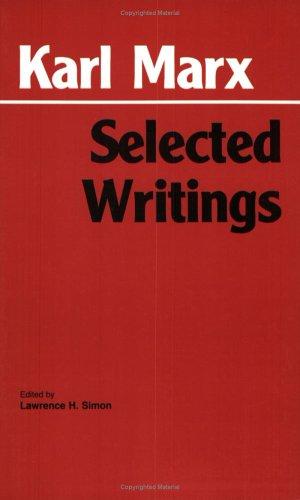jared@mathstodon.xyz quoted Selected writings by Karl Marx
In the social production of their existence, men inevitably enter into definite relations, which are independent of their will, namely relations of production appropriate to a given stage in the development of their material forces of production. The totality of these relations of production constitutes the economic structure of society, the real foundation, on which arises a legal and political superstructure and to which correspond definite forms of social consciousness. The mode of production of material life conditions the general process of social, political and intellectual life. It is not the consciousness of men that determines their existence, but their social existence that determines their consiousness. At a certain stage of development, the material productive forces of society come into conflict with the existing relations of production or -- this merely expresses the same thing in legal terms -- with the property relations within the framework of which they have operated hitherto. From forms of development of the productive forces these relations turn into their fetters. Then begins an era of social revolution. The changes in the economic foundation lead sooner of later to the transformation of the whole immense superstructure. In studying such transformations it is always necessary to distinguish between the material transformation of the economic conditions of production, which can be determined with the precision of natural science, and the legal, political, religious, artistic or philosophic -- in short, ideological forms in which men become conscious of this conflict and fight it out. Just as one does not judge an individual by what he thinks about himself, so one cannot judge such a period of transformation by its consciousness, but, on the contrary, this consciousness must be explained from the contradictions of material life, from the conflict existing between the social forces of production and the relations of production.
— Selected writings by Karl Marx (Page 211)
The clearest, most concise definition of Marx's philosophy comes in his "Preface to A Contribution to the Critique of Political Economy." This passage gives a useful lens for understanding the theoretical motivations for Marx-inspired political activists.
I believe, after many egregious failures through the first half of the 20th century, American economists such as Bob Lucas and philosophers such as Robert Nozick have provided precise alternatives to the Marxist study of incentives and political rights. The ideas summarized in this passage still provide much grist for social theorists. Even if you're a market liberal like myself, you'd be a fool to dismiss Marx out-of-hand.

